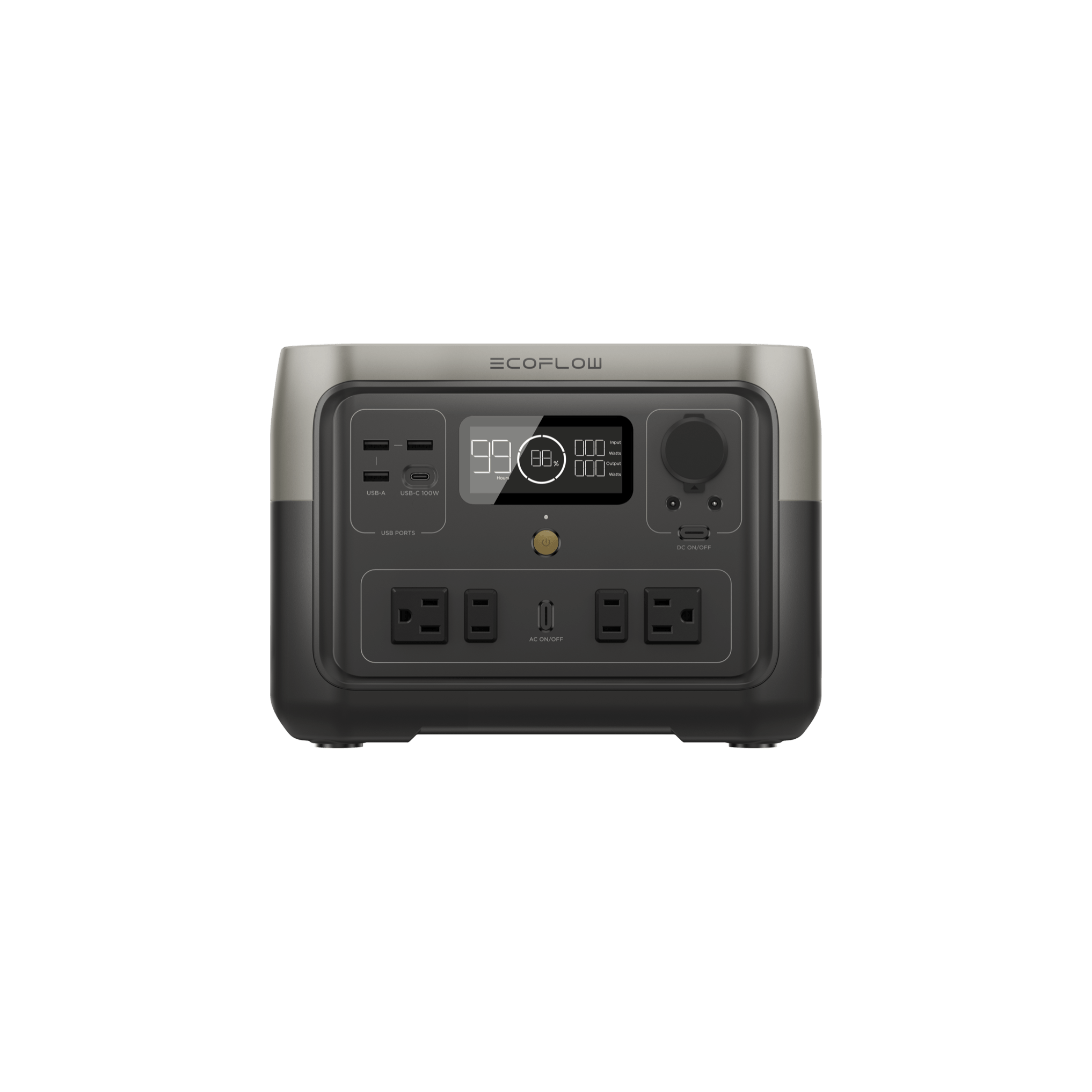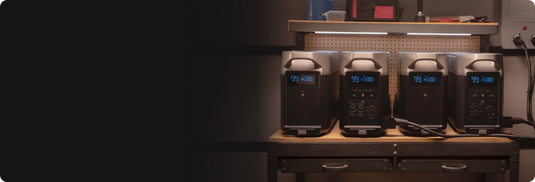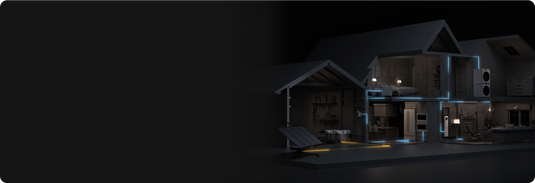Reliable Top Offers
Comfort and Cooling Offers
Reliable Home Backup Power
Choose EcoFlow, Choose Reliability
Choose EcoFlow,Choose Reliability
Built for Resilience
Reliable and Long-lasting
Unrivaled Power
Easy to Use During Emergencies
FAQ
What causes power outages?
Power outages can occur due to a variety of factors, some of which are within human control, while others are not. For instance, authorities may decide to implement rolling brownouts in a particular city or region to reduce overall energy consumption. Although such intentional outages may have negative effects on residents and businesses, they are usually brief and well-managed.
However, electrical grids can also experience sudden interruptions for various reasons. For instance, a car accident may bring down an electrical pole, leading to a temporary outage due to the damaged line. Similarly, natural disasters, such as hurricanes, tsunamis, or fires, can cause significant damage to large-scale electrical systems, resulting in prolonged power outages.
EcoFlow offers reliable products and support services to help users manage these situations effectively. Additionally, our Emergency Kit Checklist provides more detailed advice on disaster preparedness, which you can access by signing up.
How do you use a power station in extreme sunlight?
Power stations, including portable power stations and power banks, are designed to operate within specific temperature ranges. Most power stations function optimally within temperatures ranging from 32°F to 104°F (0°C to 40°C). For DELTA 2 Max and DELTA Pro, the ideal temperature scope is 32°F to 113°F (0°C to 45°C). However, their performance may be affected if used in extreme temperatures outside this range.
Using a power station in very high temperatures, such as above 113°F (45°C), can cause it to overheat, reducing efficiency. If you anticipate using a power station in high-temperature environments, consider keeping it in a shaded area to prevent overheating. Avoid exposing it to direct sunlight for extended periods, as this can raise its internal temperature significantly. Always refer to the user manual for specific temperature-related information and guidelines to ensure safe and proper usage.
Will solar panels work during a power outage?
If your solar panels are grid-tied, they will be rendered ineffective, just like any electrical system connected to the grid during an outage. However, if you've hooked up your solar panels to a solar battery or generator as part of a Smart Home Ecosystem, they can continue to generate and collect electricity as long as they have consistent access to sunlight.
Reliable and constant access to power is why solar generators are best for emergency home backup. You can access the necessary power to get you through the outage, regardless of the grid situation in your area.
What category of hurricane can cause power outages?
The Saffir-Simpson Hurricane Wind Scale classifies hurricanes into five categories, with category 5 being the most severe. Hurricanes with a category 1 rating (74-95 mph; 64-82 kt; 119-153 km/h) can cause some damage, such as damage to roofs, shingles, vinyl siding, and gutters of well-constructed frame homes. Trees may also lose large branches or fall if they are shallowly rooted. Power lines and poles may be extensively damaged, resulting in power outages that could last for days.
While all hurricanes have life-threatening winds, those rated category 3 or higher are considered major hurricanes. These can cause catastrophic wind damage and significant loss of life due to their strong winds. All categories of hurricanes can also produce storm surges, floods from heavy rainfall, and tornadoes, all of which require preparation and action in advance. This includes stocking up on disaster preparedness supplies such as power stations or evacuating from high-risk areas in a timely manner.
How do hurricanes form?
Powerful weather events known as hurricanes derive their energy from warm tropical waters. They often originate as a tropical wave, a low pressure area that moves through the moisture-rich tropics, sometimes causing increased shower and thunderstorm activity.
As the weather system moves westward across the tropics, warm ocean air rises into the storm, forming an area of low pressure underneath. This causes more air to rush in, which then rises and cools, leading to the formation of clouds and thunderstorms. In the clouds, water condenses and forms droplets, releasing more heat to fuel the storm.
When wind speeds within the storm reach 74 mph, it is classified as a hurricane. The terms "hurricane" and "tropical cyclone" refer to the same type of storm: a rotating, organized system of clouds and thunderstorms that originates over tropical or subtropical waters and has closed, low-level circulation.
During a single hurricane, the winds can generate about half as much energy as the entire world's electrical generating capacity, while cloud and rain formation from the same storm may release a staggering 400 times that amount.
How long can you run a generator continuously?
During a power outage, generators can be very helpful. However, it's important to consider the benefits of different types of generators for continuous use. Gas generators should not be used for more than 12-18 hours due to the risk of carbon monoxide emissions and the need for refueling. On the other hand, solar generators are a safer option as they don't produce harmful gases and can be charged using solar panels even when in use.
How can I survive a week-long power outage?
A week-long power outage is no joke. Preparation is key. A backup power source, such as DELTA Pro, can make a significant difference. Additionally, ensure that you have an adequate supply of nonperishable food and water for your family, as well as battery-powered flashlights and lanterns and plenty of board games and books for entertainment. It may also be helpful to have body wipes and other hygiene products that do not require running water in case those systems are compromised.
How long is food OK in the fridge without power?
In the event of a power outage lasting more than 4 hours, it is recommended that you avoid consuming any food from your refrigerator. Perishable items such as meat, fish, cut fruits and vegetables, eggs, milk, and leftovers should be discarded after 4 hours without power or a cold source like dry ice. To prolong the safety of your food, refrain from opening the fridge or freezer doors.
What should I do after the power comes back on?
Please be cautious even after the power is restored. It is important to thoroughly inspect any appliances or basement areas that may have been submerged in water. Check the level of water contamination and the extent of food spoilage. The Emergency Kit Checklist from EcoFlow (which can be obtained when you sign-up) provides detailed guidelines. After everything is restored, it is wise to replenish your emergency kit promptly to prepare for any future hazards. If there are any issues with EcoFlow's power station during the disaster, we offer free repairs and 24/7 online customer service to address any concerns you may have.
What are the different types of home backup power?
Home backup power mainly consists of two kinds: portable power stations and solar generators.
A portable power station is a mobile energy source that can be used as a backup power supply in many scenarios, such as using it at home for emergency backup power or taking it outdoors for camping. It is basically a high-capacity battery for storing electricity, often equipped with an array of outlets from USB ports, DC outlets and AC and solar panel input ports for recharging.
A solar generator capitalizes on solar panels to draw solar power and convert it into electricity, which can be stored in a battery for later use. It also has a charge controller to regulate the flow of electricity. Solar generators are commonly used for backup power supply for home, camping, outdoor activities, and emergency preparedness, providing a clean and reliable source of power.
How long can solar batteries power a house during an outage?
The amount of time your solar batteries can power your home during an outage depends on the efficiency and capacity of your solar generator. If you need to power your house for a long time, you can invest in extra energy storage, like EcoFlow's Extra Batteries, and store more energy for emergency use. You can also harvest additional solar energy with your solar panels. The more panels and batteries you have, the longer you can keep power flowing in your home during an outage.


























